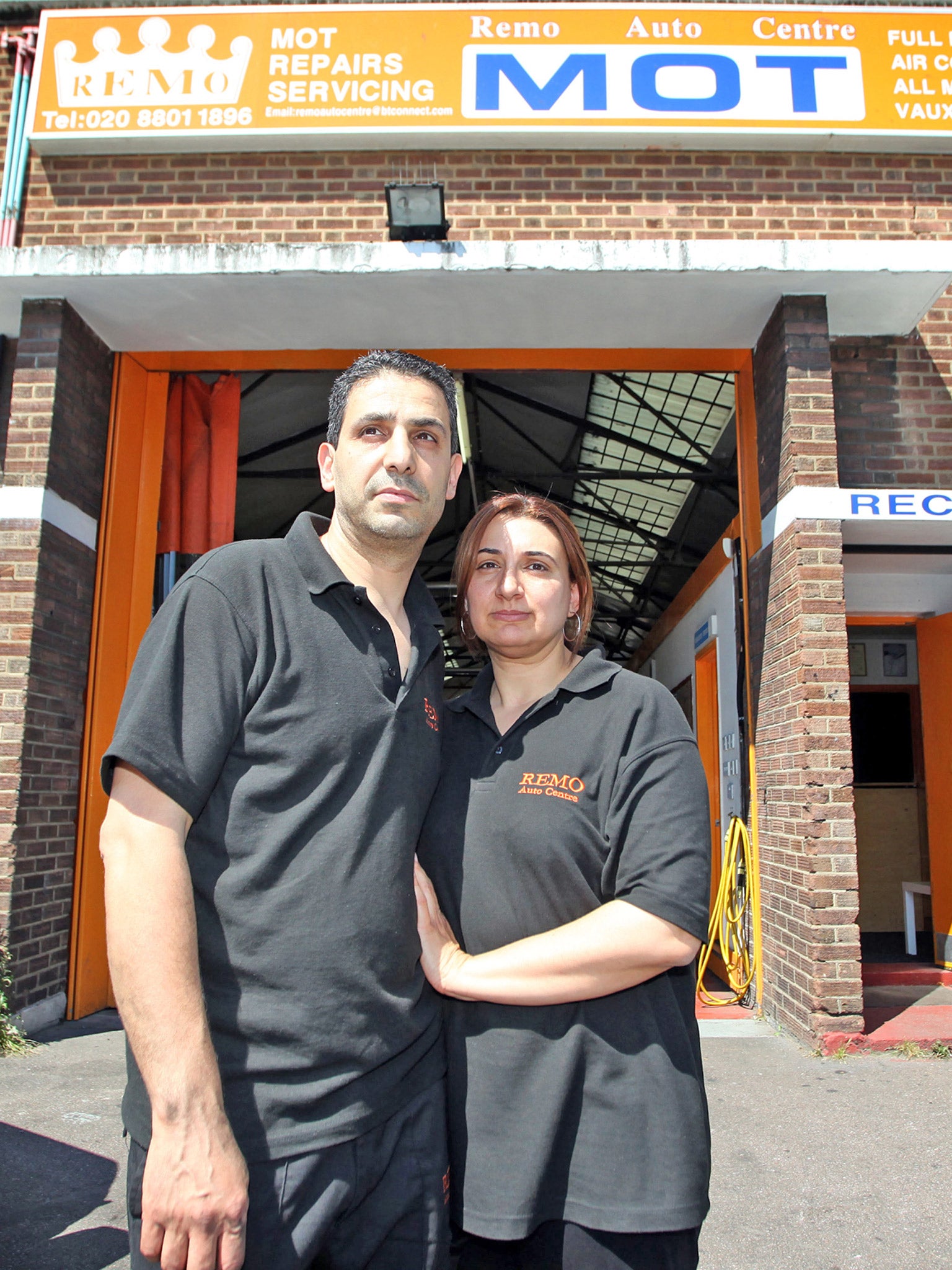The forgotten victims of the London riots who 'have no future'
A regeneration plan for Tottenham is too little, too late, says one family who lost its livelihood

Your support helps us to tell the story
From reproductive rights to climate change to Big Tech, The Independent is on the ground when the story is developing. Whether it's investigating the financials of Elon Musk's pro-Trump PAC or producing our latest documentary, 'The A Word', which shines a light on the American women fighting for reproductive rights, we know how important it is to parse out the facts from the messaging.
At such a critical moment in US history, we need reporters on the ground. Your donation allows us to keep sending journalists to speak to both sides of the story.
The Independent is trusted by Americans across the entire political spectrum. And unlike many other quality news outlets, we choose not to lock Americans out of our reporting and analysis with paywalls. We believe quality journalism should be available to everyone, paid for by those who can afford it.
Your support makes all the difference.At the end of December, the next £8,000 quarterly bill for rent will arrive at the Mehmet family’s motor repair business in Tottenham. Asked how she will pay for it, Shefika Mehmet shrugs. She has no idea. Debts are mounting and the business is up for sale.
Mrs Mehmet and her husband Omer can pinpoint the day their business started to fail. The Carpetright building next door was torched during the summer riots that began on August 6 following the police shooting of Mark Duggan. The blazing building that damaged their workshop and the cars inside became one of the main symbols of the violence that spread across the country.
Barely one hundred yards away from the Mehmets’ workshop, a new “community hub” is being built inside the former council planning offices burnt out in the riots. The hub was today cited by Boris Johnson as one of the post-riot achievements when he joined civic leaders to announce plans for a new body to “spearhead Tottenham’s regeneration”. The Mehmets are deeply sceptical. “There is no future,” said Mr Mehmet. “Not for us.”
The report by a group headed by property developer Sir Stuart Lipton called for more money, strong political leadership from national to local level, and private sector funding to regenerate an area that has seen two major riots in less than 30 years.
From a once thriving area, Tottenham now has one of the highest levels of unemployment in Britain. More than 40 percent of local children live in poverty, double the UK average, according to the report. Tensions remain between different groups – there are more than 200 different languages spoken – and it remains a centre of “population churn” with new immigrants arriving to take advantage of the relatively cheap new housing compared to other parts of London.
Despite the failure of previous regeneration projects, the report claims says that “with appropriate substantial financial support” things can be different. “It is now up to our political leaders to decide,” said the report. “Although it took another riot, it shouldn’t take a third.”
Along the road where rioters destroyed livelihoods, there are some signs of improvement. A new Aldi supermarket has opened. Council posters (“I love Tottenham”) are pinned to hoardings that welcome the decision by Premiership side Spurs to remain in the borough and other new initiatives. “A new team to tackle grime.”
But the hangover from the riots is clearly evident. The Tottenham MP David Lammy – who suggested that the report was the “single most important moment in Tottenham’s history in my lifetime” - said that insurance premiums for some businesses hit by the riots had gone up by 75 percent. The report – that calls for new housing, better transport and “more fun” with a new cinema – comes in the teeth of a bitter recession, he points out.
Mr Johnson said that £28 million had been put into regeneration. “What happened in Tottenham last year was a wake-up call to us all and I am determined that scenes should never be repeated,” he said.
Based on their experience, the Mehmets scoffed at the idea of a co-ordinated response from government and private sector. The Mehmets, a hard-working and tight-knit Turkish Cypriot family, had ploughed everything they had into the Remo Auto Centre. But while Ministers called for help for small businesses hit by the riots, the Mehmets were told to pay business rates for nearly two months despite being closed for repairs. And though they took nothing from their business, their bank refused to reduce their home mortgage payments until they stopped borrowing money from relatives to pay off debts.
Three months after the riots, Mr Mehmet was diagnosed with post-traumatic stress disorder brought on by the financial burden of paying out bills for a business that could not open. “I’m 48 years old now, my parents looked after us well now and now they need us to look after them. Still they’re looking after us,” he said yesterday. “As an older person, I don’t feel right. There’s nothing worse than that. We can’t look after our family. They’re afraid to turn up the heating because of the bills.”
Subscribe to Independent Premium to bookmark this article
Want to bookmark your favourite articles and stories to read or reference later? Start your Independent Premium subscription today.
Join our commenting forum
Join thought-provoking conversations, follow other Independent readers and see their replies
Comments